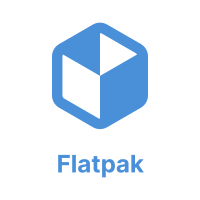< SIGs
|
Flatpak SIG
A SIG for people who are interested in improving the state of Flatpak packaging in Fedora.
This includes maintaining existing Fedora Flatpaks, maintaining the Fedora Flatpak runtime, improving the documentation around Fedora Flatpaks and improving the packager experience when working with Fedora Flatpaks.
Meetings
15:00 GMT on Monday, starting on January 23rd 2023, and recurring every two weeks in #fedora-meeting[?] IRC channel / #meeting:fedoraproject.org Matrix room. See the Fedora Calendar.
The agenda is tracked in: https://etherpad.opensuse.org/p/fedora-flatpaks-sig
Join the Flatpak SIG
If you are interested in joining the SIG, please add your name down below and come to the first IRC meeting. We'll discuss how to set up the SIG and first steps.
- Alec Leamas
- Allan Day
- Debarshi Ray
- Felipe Borges
- Hari Rana (TheEvilSkeleton)
- Jan Grulich
- Kalev Lember
- Renich Bon Ćirić
- Stephen Smoogen
- Timothée Ravier
- Tomas Popela
- Yaakov Selkowitz
- Jan Beran
Communication
Matrix Room
IRC Channel
#fedora-flatpaks[?] on libera.chat
Mailing List
Do we need one?
Documentation
For users and testers
Developer and packaging docs
- Fedora Flatpak packaging
- OpenShift Build Service - Flatpak
- Discussion thread: can’t install fedmod
- List of apps it would be easy to package as Flatpaks
Project repositories
Tools
Fedora Flatpak and SIG FAQ
Why do we need Fedora Flatpaks?
We need Flatpaks built and released by the Fedora project to be able to pre-install them on Fedora editions and variants such as Fedora Silverblue, Fedora Kinoite, etc.
Why not "just" use Flathub?
The following points make it legally and practically not possible to use Flathub to pre-install Flatpaks in Fedora:
- Flathub includes a mix of FOSS and proprietary software by default.
- Fedora Legal has not approved installing Flatpaks from Flathub by default in Fedora.
- Flatpaks packaged on Flathub do not necessarily follow the Fedora release process, which includes Beta and release freezes.
What are the advantages of Fedora Flatpaks?
Flatpaks made by Fedora have the following advantages:
- They are made from the same sources as the RPMs, and thus must meet the same constraints regarding FOSS licences as the rest of the packages in Fedora.
- They are tested and released in sync with Fedora releases and updates can be tested in Bodhi.
- They are built on Fedora infrastructure.
How are Fedora Flatpak made?
In Fedora, Flatpaks are made from the same sources as RPMs, but are built with a different PREFIX in order to install the application and its dependencies in /app (instead of /usr for RPMs).
The builds happen in the Fedora infrastructure using OSBS. See documentation in OpenShift Build Service - Flatpak.

